|
By Emily Carrington EPLA President
For the last few years there has been a growing trend of commercial brands allowing their customers to “opt-out for Mother’s Day.” This allegedly means they would not receive all of the Mother’s Day themed marketing emails that flow to our inboxes during April and May. For example, Kay Jewelers offers an opt-out option, saying, “We’re here to inspire love and happiness, but we know Mother’s Day can be a challenging time. If you’d rather not receive Mother’s Day related emails enter your email address below.” Other stores have shared similar messages with their customers and subscribers, acknowledging Mother’s Day is not easy for everyone. My first Mother’s Day following my first miscarriage was surreal. I didn’t know what to feel and honestly, that one wasn’t the hardest Mother’s Day for me. The feelings had not yet settled yet. It had only been a few days since my D&C, and I was simply trying to exist. It was later that my own identity, or lost identity, as a mother started to sting. I wanted that baby to hold. I wanted to be a mom. I wanted to do mom things. I felt left out of the club. It was because I had placed so much value on my own motherhood that I grieved it so deeply. I think Mother’s Day is a beautiful time to honor our own moms, to reflect on our own motherhood, and to hold up the women who have done so much for us. But for many it comes with pain. At EPLA, we know deeply that Mother’s Day is hard for some, and we’re glad to see that companies are starting to see it, too.
1 Comment
By Maria Servold Hope Blooms Editor
Last month, the Early Pregnancy Loss Association hosted its second fundraising gala. Even though it was windy, raining, and cold outside in lower Michigan guests gathered with the spirit of the coming spring. We were delighted to fellowship with about 50 guests - new and old friends committed to caring for the women and families suffering miscarriage. A cash bar, hors d'oeuvres, and beautiful live plant decor provided by EPLA board member Katie Stockdale set a chic and cozy scene. Throughout the night, we promoted a Miscarriage Care Kit sponsorship drive, and more than 40 generous donations were made that evening alone! “The gala reminded me how important it is to come together,” said EPLA Executive Director, Emily Carrington. “While the tone of the gala was joyful, people also felt safe to share their own stories. I also think it was important for many who attended that they had an outlet to support others grieving early pregnancy loss.” Support from friends and donors has helped EPLA expand. “It has been amazing to watch this organization grow,” said Maria Servold, EPLA Board President. “When we first began this organization in 2016, we did not imagine we would be able to provide more than 1,000 kits to women across the country each year.” EPLA is so grateful for those who were able to attend the gala, those who generously helped sponsor the event, and those who sent donations in lieu of attending. “The gala was a huge success and a testament to the necessity of the work we are doing. We were thrilled to see such an outpouring of support,” Emily said. The Gala is the first of two special fundraisers for 2023. This fall EPLA will host another Fall Bulb Sale featuring tulips, daffodils, and other bulbs. If you are interested in ongoing support for EPLA we Miscarriage Care Kit Sponsorships are always available or we invite you to join us as a Monthly Donor. By Nick Carrington EPLA Editor Recently, Britney Spears announced that she had experienced a miscarriage. At EPLA our hearts break for her and Sam Asghari, the father. In her post, Spears noted that they perhaps “should have waited to announce until we were further along…”, a common sentiment among families that miscarry. It should surprise no one that families feel that way, and there is nothing wrong if that’s the approach that parents want to take. But there are advantages to announcing a pregnancy early, even if it ends in tragedy. One advantage is that if something happens, a community of loved ones will know the family is hurting and why. Part of feeling isolated is that others, even those close to the loss parents, don’t know their loved ones are struggling. After the loss, it may be difficult to reach out for help because doing so can feel like burdening the people they care about. Another advantage is that more people have the chance to celebrate the child, even as they never get to interact with him or her. Children lost in the womb should be mourned, yes, but also celebrated. They were people, part of a family, if only for a short time. Of course, this approach means that loss parents may have to tell more people than they want about their loss. It can be exhausting to restate something that causes such pain. Regardless of what you decide, resist the urge to second guess yourself. No matter when you announce a pregnancy, there are advantages and disadvantages, and if your family suffers through a miscarriage, those details are some of the least important. Get the help you need – physically, emotionally, and spiritually. For Spears and Asghari, we hope they have peace and that a community rises up to ease their burdens as they grieve. Nick Carrington is an Editor for the EPLA and Associate Professor of Professional Writing at Cedarville University
By Emily Carrington EPLA Executive Director When I was diagnosed with my first missed miscarriage, I didn’t even know what those words meant. I sat overwhelmed with both grief and confusion. After the diagnosis the doctor was kind and gentle. He invited me back at any time to answer questions. My brain reeled but seemed stuck at the same time. I didn’t even know what questions to ask. I had nowhere to put my thoughts while I was getting a crash course in pregnancy loss. As EPLA describes in our educational resources, “a missed miscarriage, also called a missed abortion, is an early pregnancy loss in which the baby has died but has not been expelled from the uterus. When a missed miscarriage occurs, three options are available: to induce labor to expel the baby, to have a dilation and curettage procedure, or to wait until the body recognizes the miscarriage and goes into labor on its own.” Some miscarriages start with sudden bleeding and some miscarriages *start* with the words “I am sorry there is no heartbeat.” Following my missed miscarriage I realized that many of the terms used in early pregnancy loss are unknown to many people. Often the term miscarriage is used to lump everything together. This overgeneralization does a disservice to women and families suffering loss, as they have no way to understand what has happened to their baby and what will be happening to them. Such generalization also allows for myths and misunderstandings to cloud early pregnancy loss. For example, not all miscarriages are “like a heavy period,” a common misconception that overlooks the hard labor many women endure to expel an embryo or fetus. It is important that we are careful and precise with our language so we might know how to best care for each other. Here at EPLA we work to clarify these misconceptions, share stories, and give voice to the suffering. We believe that dignity is found in clinging to the truth. We must affirm the lives lost, the physical experience of the women, and the suffering of the family. This must start with a full understanding of terms. In the coming months we will continue to highlight words such as ectopic pregnancy, molar pregnancy, chemical pregnancy, and more. We will explore medical procedures such as a dilation and curettage as well as natural labor following a miscarriage. This education is necessary for us to provide care for women and families suffering loss. Emily Carrington is a freelance writer, wife, mother, and founder of the EPLA.
By: The Editors Sometimes in the nonprofit world, it is easy to think of fundraising as the necessary thing you do so you can do your actual work. But then, sometimes, everything comes together and something really special happens. On Oct. 23, the Early Pregnancy Loss Association hosted its first Fall Charity Gala. It not only helped us raise money so we can provide resources to families, but at the event, we encouraged community AND raised awareness about pregnancy loss. (All three areas of our mission!) The gala itself was such a testament to the changing culture around early pregnancy loss. More than 50 people in our local community came together, recognizing that caring for women and families experiencing early pregnancy loss is a cause worth supporting. Awareness is rising. Good things are happening. We could not have done it without our amazing board of directors: Emily Carrington, Steph Gordon, Katie Stockdale, Maria Servold, Amanda Allen, Linda Tibbitts, & Sarah Gregory. We are so thankful for our gracious hosts, Bob and Kathy Norton and for our amazing sponsors:
We will continue to work towards our goal: a world where all families suffering early pregnancy loss receive physical, emotional, educational, and financial support.
By Nick Carrington EPLA Editor When grief attacks, it comes for the whole person, plundering their physical, emotional, and spiritual reserves. In miscarriage, a mother’s body needs to heal without the joy of holding their little one. Both parents must fight through the reality that their home is missing someone, a person of infinite value.
This kind of attack makes daily life that much harder, but life rarely slows down. Parents are often required to go to work with limited or no time off. Bills need to be paid, and they must keep their house in order. If loss parents have other children, those little ones still need to get to school or daycare or be cared for at home. Amid grief, these normal parts of life become overwhelming. Healing often comes in community, and one reason why is that we can take the burdens of others upon ourselves. Picking up those little weights allows a grieving person to breathe, if only for a few moments, and reminds them that they are loved. But even in the grief of miscarriage, hurting people don’t want to inconvenience others. They will likely not ask for help, soldiering on to avoid their pain or appear okay. Many well-meaning people have said “let me know how we can help.” Those words usually lead to nothing, the grieving unwilling to ask for something specific. So as a loved one, don’t say that. Instead, offer to do something at a particular time. Tell them you want to cut their grass on a Saturday. Offer to set up a meal train and make one of your own to bring them. Watch their kids so loss parents can catch up on important tasks or simply be together as a grieving couple. It will be much easier for loss parents to say yes to an offer of specific help, and it shows you’ve thought about their needs. Take some of their responsibilities upon yourself, sacrificing your time to help them heal. They may not know they need it, but these little acts of kindness will ease the pressure in their minds and hearts and give them more space to grieve. Nick Carrington is an Editor for the EPLA and Associate Professor of Professional Writing at Cedarville University By Emily Carrington EPLA Founder and President My four year old has recently started telling people about her baby brother. She talks about him candidly and fondly, foreseeing a future of all the things they are going to do together. This wouldn’t be so bad, except she doesn’t have a baby brother. She has a 14-month-old baby sister. I smile, then cringe, before I announce: “No, this is not an announcement! There is no baby brother on the way!” She often calmly chimes in, “I have a baby brother!” and trails off. Sometimes the conversation is less charming, though. She once told strangers, “I have a baby brother. But he died. He died in mommy’s tummy.” I sat silently, letting them take it in, and hoping the conversation would move on. I also felt a little like a fraud, and feared their assumptions about my experience. I wanted to chime in “it was a miscarriage!” But I stopped myself. “She has told them nothing untrue,” I thought. “She has a baby brother and he died in mommy’s tummy.” Shouldn’t I, of all people, know not to compare my loss with others? Abigail knows so deeply what I struggle to know - and I carried him - that a little baby boy lived and died in my tummy. Why does it feel so distant now? Abigail’s baby brother died nearly three years before Abigail was born. He would have been older than her, but because he died in my tummy in the first trimester, he is forever her baby. Emily Carrington is a freelance writer, wife, mother, and founder of the EPLA.
By Nick Carrington EPLA Editor A few weeks ago at the Guardian, Alexandra King wrote an article titled “A maddening grief: my year of miscarriages and how I got through it.” It is a beautiful piece that touches on the various kinds of pain suffered through miscarriage – physical, emotional, and spiritual. Her pain through three miscarriages led to a new hobby: baking bread. She writes: “Still, in spite of it all, the axis upon which the tragedy/comedy line sits had figured out the coordinates of my New York City kitchen. I knew, in my heart, that it was a sad, bad joke of an impulse. No buns in my oven, at least not for long anyway. But I had to do something. So I banged out sourdough loaves by the dozen. Though many failed for no reason whatsoever, as petulant and unpredictable as my capricious embryos, I couldn’t stop. Even with forearms creased green at the elbow from the daily blood lets at the fertility clinic, where I had turned to try and see if lovely dependable science could figure out why my longed-for babies never stuck around." King also describes a new habit formed after speaking with a blood technician: “Then she asks if I believe in God. I am mortified, but I still say no, because I don’t. 'Oh,' she says, not unkindly. 'I was going to tell you to pray.' Which is why, days later, at home, watching the thick lines of my scoring puff sensuous tendrils into the lid of my loaf, I am surprised to realize, with a start, that I am doing just that. I am kneeling next to the oven, head bent, like a pilgrim at a shrine, talking to the humanist god (or goddess, or both, or nothing). That I am saying, out loud, over and over again, ‘God, please let me have my baby. I will do anything, I will be whatever you need, whatever you want, just please, let my baby stay.” I’m not sure how long I’ve been on the ground. All I know is that when I push my hands to my sticky cheeks, they are white hot, as if the oven’s flames had licked them a long time.” Baking bread. Praying. For King, these were activities born out of despair. If you read the piece (and you should), she is desperate for comfort in something, anything. Despair often drives us to new ways of thinking and new ways of doing. When we see loved ones who have miscarried, we should not be surprised by new habits. But we should also recognize that the depth of despair that King describes is because a child, or in her case, children, have been lost. Those who suffer miscarriage grieve a death, and until we acknowledge that, until we let that seep into our bones, we will struggle to comfort our bereaved loved ones. Nick Carrington is an Editor for the EPLA and Associate Professor of Professional Writing at Cedarville University
By Maria Servold EPLA Editor Spring is a time of growth and fruitfulness. At Early Pregnancy Loss Association’s headquarters in Hillsdale, Michigan, the directors have recently taken several steps to expand and solidify our work. Most excitingly, the organization was able to move into a new, bigger space that will allow us to store supplies, conduct business, fulfill requests for care kits, and hold meetings all in one place. We look forward to working out of this location! EPLA is also in the process of hiring a part-time employee who will take over tasks like data entry, care kit mailing and organizing, care kit distribution tracking, etc. We are so happy to have someone dedicated to these tasks, which are currently shared by the board. Finally, we are glad to report that we created another 500 small miscarriage care kits in April, which were donated to Metro Detroit Share, who will distribute them as part of their own early loss bags all over metro Detroit. This is the second time EPLA has created 500 kits for MDS - the first donation was in July 2020. We are thrilled to work with MDS, as it allows us to help more women and families across the state of Michigan. We also hope to soon expand our care kit services into Northwest Ohio. 2021 is shaping up to be a year of growth and expansion for EPLA! As always, thank you for your support. If you would like to stay up to date about our growth and upcoming needs email us at [email protected] to be added to the mailing list! Maria Servold is an Editor at the EPLA, Assistant Director of the Herbert H. Dow II Program in American Journalism, and Lecturer in Journalism at Hillsdale College.
By Nick Carrington EPLA Editor Our culture struggles to comfort families who have suffered a miscarriage. One reason is that we have trouble empathizing. We expect to lose elderly loved ones at some point. Many children know what the loss of a grandparent feels like. Far fewer of us know how to nurse the wound of losing a child. We can’t fathom that level of ache - what it’s like to take the screws out of a crib. Even if we can imagine the loss of a child, the lack of interaction with a miscarried child makes it harder. The parents recognize the loss as what it is: the death of a person. The mother feels her child within her, or at least the sickness, tiredness, or other bodily changes that come with being pregnant. She bonds with her little one in a special way, the way only a mother can. Both the father and the mother dream of who that child will be. They think of holding that little one, clothing him or her, instilling wisdom and virtue. A father may read or sing to his child in the womb, hoping he or she will learn to recognize his voice. The parents love the child. Their child. But as friends and family, we don’t dream daily of that child. We never get to hold him or her. While we understand that little one is part of our family, we don’t feel it until we experience him or her for ourselves. So when there is a miscarriage, many loved ones struggle to empathize. It feels like an event without a category, something outside of our experience. It’s not. Not feeling the weight of reality doesn’t change reality. Our loved ones have lost a child and to mourn with them, we must work to empathize with them, recognizing the magnitude of that loss. To do otherwise is to fail to help the parents or give dignity to their child. To see and on some level, suffer that loss, we need to read stories of loss. We need to absorb the kind of language parents of miscarriage use. We need to listen to our loved ones when they are ready to talk. In doing so, we take a small part of their burden upon us. In tragedy, that may be all we can do. Nick Carrington is an Editor for the EPLA and Associate Professor of Professional Writing at Cedarville University
|
Archives
December 2023
Categories
All
|



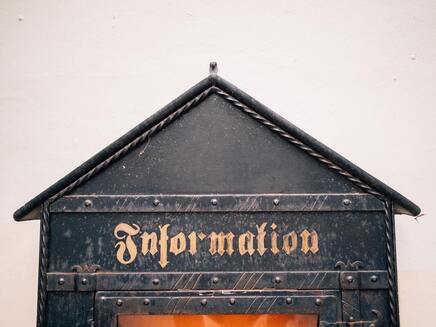
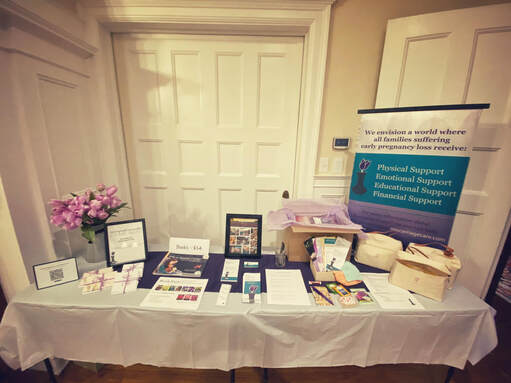
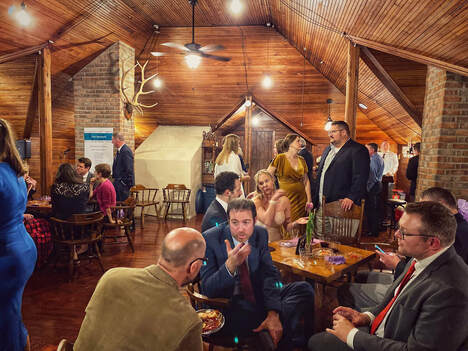
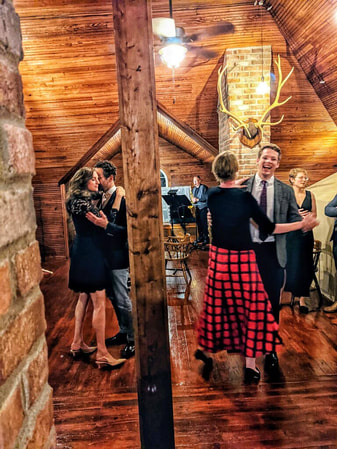
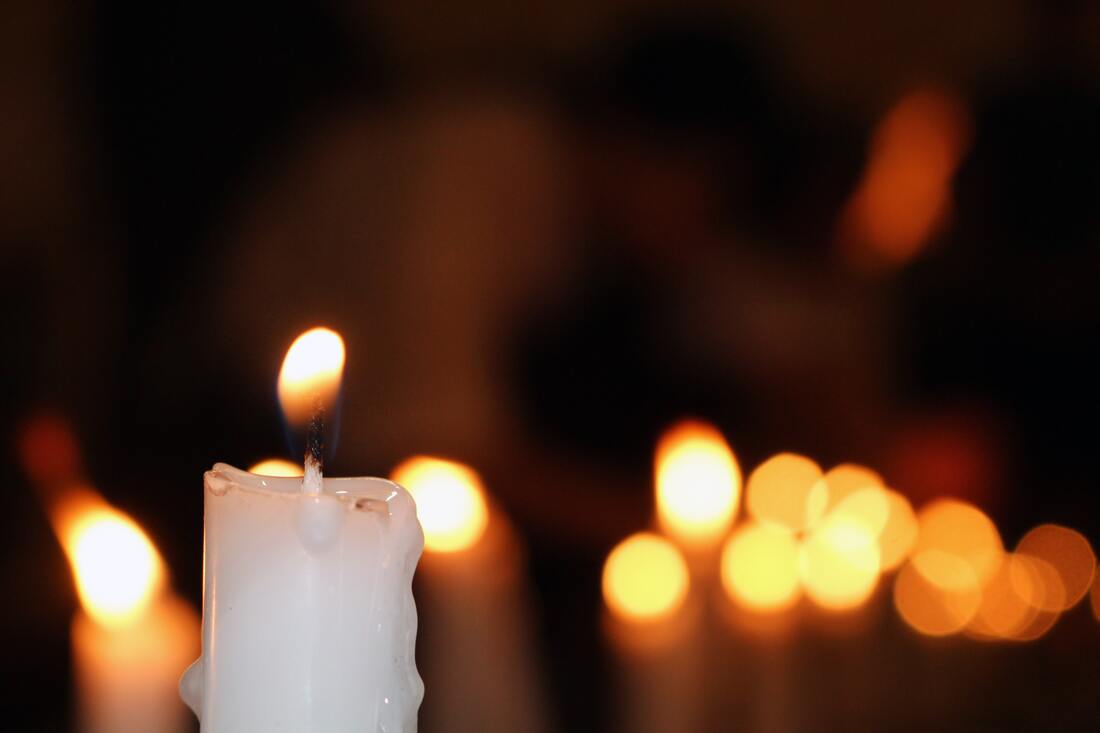
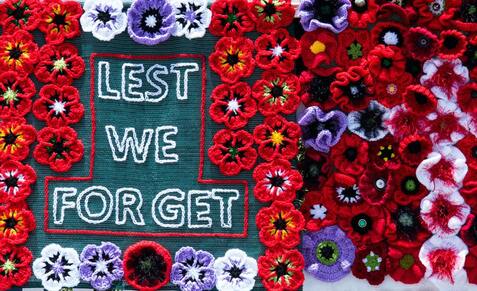

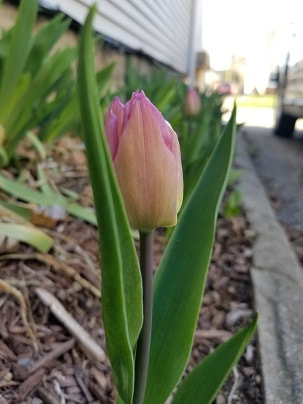
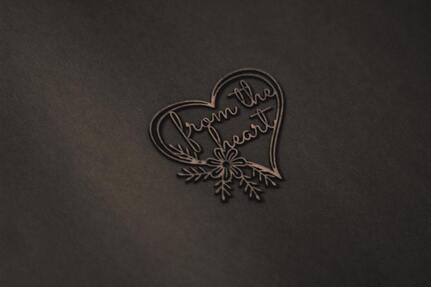
 RSS Feed
RSS Feed